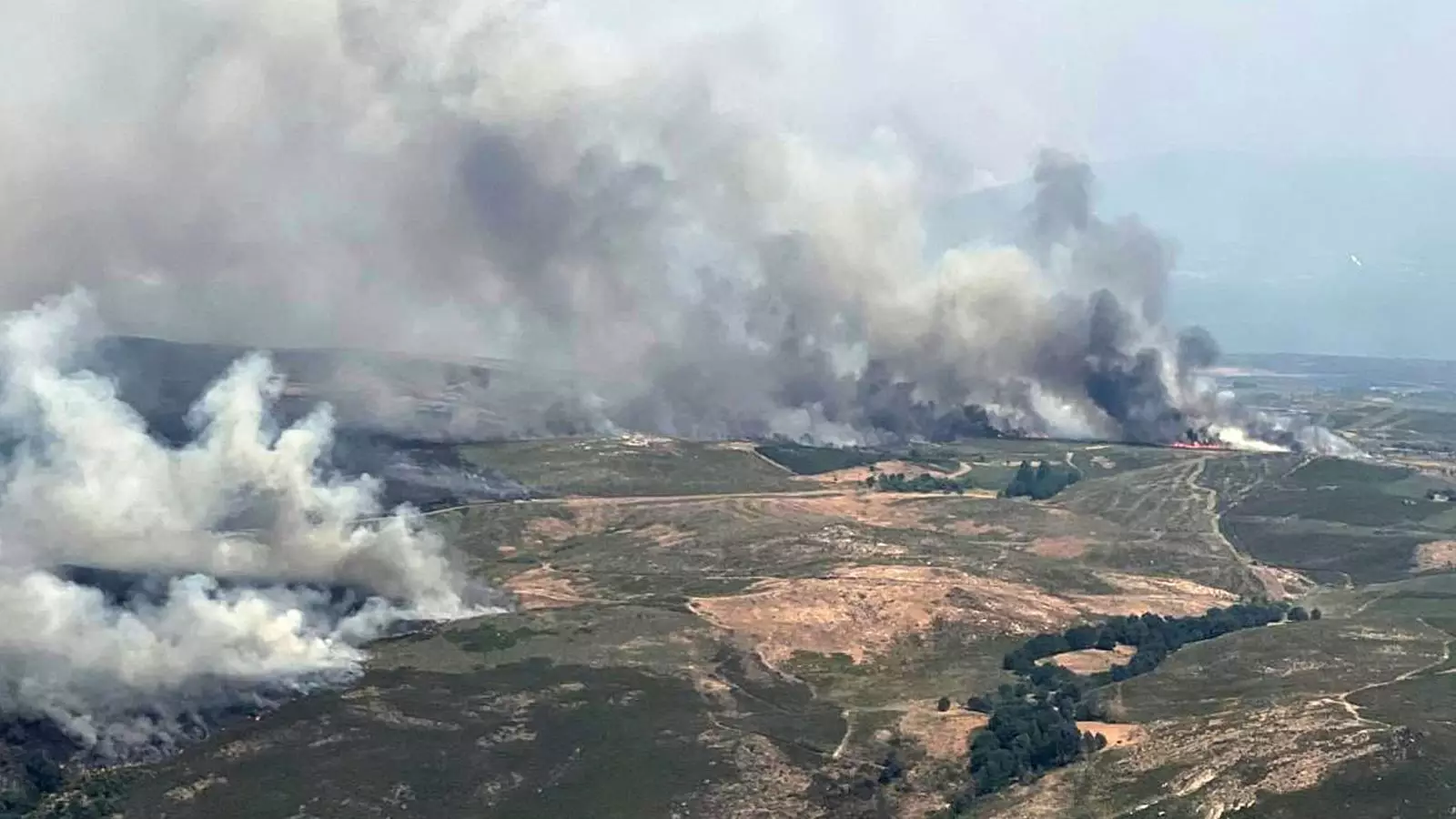The recent haze enveloping the UK, caused by wildfires in Spain and Portugal, might at first seem like a natural atmospheric anomaly. However, beneath this picturesque display of vibrant sunsets lies a sobering warning about an ongoing environmental catastrophe that we have yet to fully confront. The widespread smoke and dust are not mere atmospheric curiosities but symptomatic of deeper, systemic failures to address climate change. The impact on our skies is a visual reminder that our reckless disregard for the environment is fueling a cycle of extreme weather events that threaten not just distant regions but our own communities.
The depiction of the smoky skies with “deeper reds and oranges” sounds poetic until one considers its true origin: wildfires fueled by rising global temperatures and a warming climate. These fires, intensified by prolonged heatwaves and droughts, are not isolated incidents but signals of a planet approaching unsustainable tipping points. It is easy to dismiss wildfires and their smoke as temporary or localized issues, but they are, in truth, manifestations of the climate chaos that governments and corporations have marginalized and failed to halt.
Global warming: The unseen villain behind rising wildfires
The connection between climate change and increasingly severe wildfires is clear and scientifically backed, yet it remains a contentious topic in political discourse. The wildfires ravaging Southern Europe—destroying vast areas the size of London and claiming lives—are directly linked to extreme heat and drought conditions that are amplified by human-induced global warming. The same trend is visible in the United States, Australia, and many other parts of the world. The fact that nations continue to prioritize short-term economic gains over sustained environmental stewardship demonstrates a reckless blindness to the long-term consequences.
While fire suppression and firefighting efforts are vital, they do little to address the root cause. The core issue lies in our failure to curb greenhouse gas emissions. The smoke drifting across the UK from fires burning in Southern Europe is more than a weather anomaly; it is an atmospheric proxy for our collective failure to take proactive steps against climate change. The smoke particles and Saharan dust may not significantly impact air quality now, but they serve as a stark warning of what is to come if decisive action isn’t taken.
The politics of denial and the urgent need for progressive action
Unfortunately, political inertia continues to hinder meaningful climate policies. Many leaders dismiss climate change warnings as exaggerated or, worse, refuse to act because of economic concerns or ideological commitments to fossil fuel industries. This refusal to confront the crisis head-on fuels a dangerous misconception: that climate change is either a distant problem or one that can be solved solely through technological fixes rather than systemic reform.
A genuine response requires more than superficial measures or greenwashing. It demands a societal shift towards sustainability, increased investment in renewable energy, and policies that prioritize environmental resilience over short-term profits. We must recognize that wildfires are not just weather events but consequences of our collective neglect. The rising temperatures that intensify fires, droughts, and atmospheric disturbances are a direct result of policies rooted in fossil fuel dependency. Ignoring this truth only prolongs the agony and exacerbates the destruction.
The moral obligation to change course
As citizens, we face an ethical dilemma: do we continue to enable destructive policies that accelerate climate breakdown or do we advocate for change? The skies turned hazy by wildfire smoke are not just a meteorological feature—they are a moral summons. We have a responsibility to demand action from our leaders to implement policies that prioritize environmental sustainability and social justice.
This crisis is also an opportunity for introspection and collective resilience. By understanding that climate change is intertwined with global inequality—where poorer communities often bear the brunt of catastrophic natural events—we can push for a more equitable and responsible future. The global community must halt its addiction to fossil fuels, invest wholeheartedly in renewable solutions, and rewrite our relationship with the planet before the damage becomes irreversible.
The smoke that now drifts over the UK is a sobering reminder that the consequences of inaction are not distant or abstract. They are tangible, direct, and ongoing. Our responsibility is clear: confront the reality of climate change with unwavering resolve and ensure that future generations inherit a planet capable of thriving, not just surviving.


Leave a Reply